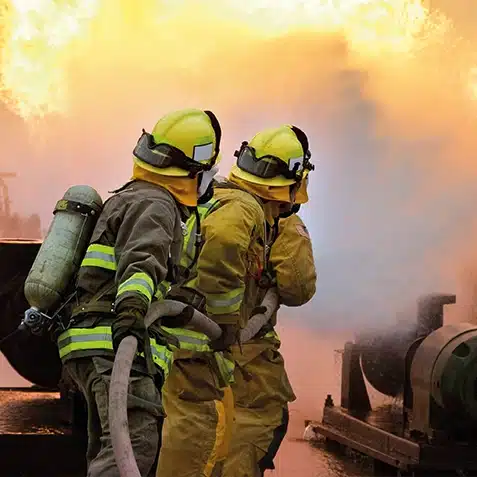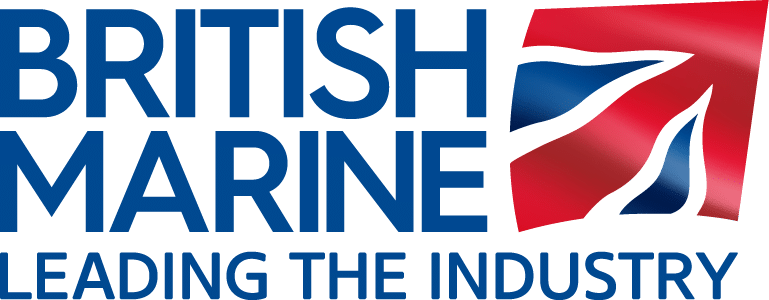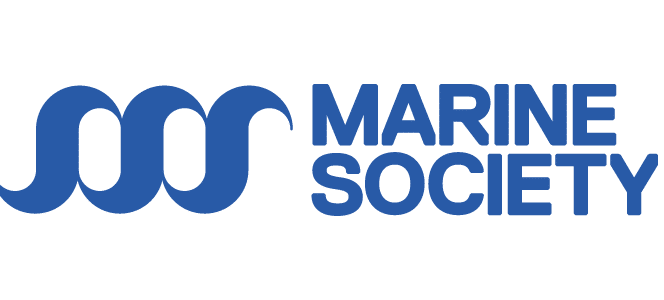Maritime Fire Risk Management Course
Become a Qualified Maritime Fire Risk Manager
The course is suitable for those working or aspiring to work in the ship and passenger safety sector including personnel undertaking firefighting activities and safety management both at sea and ashore.
With this Shoreside Maritime Fire Risk Management Diploma you will gain an in depth knowledge of not only firefighting operations but also the preventative measures required to manage the risk from fires on ships. The modules will raise your awareness of the risks associated with fire as well as develop your knowledge of the combustion process. It will also give you an understanding of the existing legislative requirements around SOLAS, the International Fire Safety Systems Code and the process of fire risk assessment. Finally it will share some practical firefighting strategies and tactics and the actions you should take as part of your post fire procedures.


Duration:
12 – 18 months

Modules:
10 in total

Cost:
Diploma: £3,195
Certificate: £2,295

Recognised by: 
If you’re ready to enrol, download the application form below.
Shoreside Maritime Fire Risk Management Diploma vs Certification
Choose the right path for your career:
Diploma - £3,195
Ideal for anyone looking to gain a prestigious qualification & recognised certification for a rewarding career in xxx.
Certificate - £2,295
Ideal for anyone looking to learn more about the course materical and learn more about the industry.
Maritime Fire Safety & Emergency Response Training
The training course consists of 10 modules. All students are required to successfully complete and pass the module assignments. Diploma students will also be required to sit and pass a final examination.
1. Introduction to Maritime Firefighting
- Introduction to fire
- History of firefighting at sea
- Notable incidents
- Legislation
- Ship fire risk analysis
- International State Port Control Inspections
2. Chemistry of Combustion
- Theory of combustion
- Ignition temperature
- Classification of fires
- Products of combustion
- Transmission of heat
- Methods of extinguishing fire
- Extinguishing media
- Backdraught & flashover
3. Prevention and Suppression of Fire & Explosion (SOLAS)
- International Convention for the Safety of Life at Sea (Solas)
- General
- Prevention of Fire and Explosion
- Suppression of Fire
4. Escape & Operational Requirements (SOLAS)
- Escape
- Operational requirements
- Alternative design and arrangements
- Engineered Solutions
5. Special Requirements (SOLAS)
- Helicopter facilities
- Carriage of dangerous goods
- Protection of vehicle, special category and ro-ro spaces
- Casualty threshold, safe return to port and safe areas
- Design criteria for systems to remain operational after a fire casualty
- Safety Centre on passenger ships
6. International Fire Safety Systems (FSS) Code Part 1
- The International Code for Fire Safety Systems (FSS code)
- Personnel protection
- Fire extinguishers
- Fixed gas fire-extinguishing systems
- Fixed foam fire-extinguishing systems
- Fixed pressure water-spraying and water-mist fire-extinguishing systems
- Automatic sprinkler, fire detection and fire alarm systems
- Fixed fire detection and fire alarm systems
- Maintenance and Inspection of Fire Protection Systems and Appliances
7. International Fire Safety Systems (FSS) Code Part 2
- Fixed Fire Detection And Fire Alarm Systems
- Sample extraction smoke detection systems
- Low-location lighting systems
- Fixed emergency fire pumps
- Arrangement of means of escape
- Fixed deck foam systems
- Inert gas systems
- Fixed Hydrocarbon Gas Detection Systems
8. Fire Risk Assessment
- Controlling the risks in relation to fire
- Identify the hazards
- Identify people at risk
- Evaluate, remove, reduce and protect from risk
- Record, plan, inform, instruct and train
- Review
- Risk assessment process
- Further guidance on fire risk assessment and fire precautions
- Further guidance on escape routes
- Further guidance on recording, planning, informing, instructing and training
9. Firefighting Operations
- Pre-planning
- Command & control
- Information gathering
- Risk assessment
- Strategy & tactics
- Fire party organisation
- Firefighting techniques
- Search procedures
- Stability
- Ventilation
- External assistance
10. Post Fire Procedures
- First aid
- Recovery
- Liaison with external organisations
- Incident Review
- Fire Investigation
- Case studies
- Future challenges
Student Success Story
The support and guidance provided were exceptional
The course offered a comprehensive and engaging curriculum, perfectly structured to accommodate both beginners and those with prior experience, the learning materials were clear and well organised, facilitating an in depth understanding of complex concept, the support and guidance provided were exceptional, offering insightful feedback and encouragement throughout the course.
This personalised attention made a profound difference in my educational journey, Overall, the course exceeded my exceptions, equipping me with valuable skills and knowledge. I highly recommend this course to anyone seeking to deepen understanding and skills in Maritime Firefighting and prevention. Many Thanks for fantastic learning experience
Wael
Emergency Response Manager
Meet the Course Director
Ian Biles
Managing Director at Maritime Services International
Ian has led MSI to become one of the world’s leading surveying companies. Ian’s qualifications include: Master Mariner, RYA Yachtmaster Ocean, Naval Architect (BEng Ship Science) and Business Management (MA Business Management).
In his role as an expert witness Ian has attended several major fire disasters on ships (Hyundai Fortune, Schiborg, Nova Zembla, Yeoman Bontrup, Amsterdam Bridge, Asian Empire) and worked with many specialist fire experts.

Shoreside Maritime Fire Risk Management Course FAQs
Find out more about the course with our FAQs below.
See our FAQ page for more questions answered about MTA courses.
Supported by:


Why Choose The Maritime Training Academy?

Flexible
Online learning allows you to study in your own time, at your own pace from anywhere in the world. This saves on travel and classroom costs and allows you to fit your studies around your job and progress your career.

Supportive
While the nature of distance learning is independent study, we recognise the importance of support. Students can contact us at any time during their course for assistance and our team of industry experts are always on hand for advice.

Expertise
We have over 50 industry experts writing, developing and advising on our course material. We truly believe that allowing students to tap into their expertise and knowledge is of the utmost importance to fulfil your dream career.
If you would prefer to complete this as a classroom-based course, please contact us.
